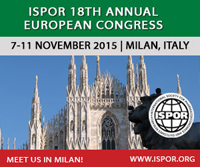Retifanlimab Vs Avelumab in Patients with Metastatic Merkel Cell Carcinoma: A Cost Utility Analysis in Italy
DOI:
https://doi.org/10.7175/fe.v26i1.1574Keywords:
Retifanlimab, Cost-utility analysis, Metastatic Merkel cell carcinoma, ItalyAbstract
OBJECTIVE: Merkel cell carcinoma (MCC) is a very rare and aggressive neuroendocrine skin cancer, characterized by a 5-year survival rate of 13.5% in patients with distant metastases. This study aimed to evaluate the cost-utility of retifanlimab compared to avelumab in the treatment of metastatic MCC patients who had not received prior systemic therapies, from the perspective of the Italian National Health Service (SSN).
METHODS: A 7-day cycles partitioned survival model with three mutually exclusive health-states—progression-free, post-progression and death—was developed to compare lifetime clinical outcomes and costs for patients treated with retifanlimab versus avelumab in the Italian context. Progression-free survival and overall survival curves were modelled independently, with POD1UM-201 trial data used for retifanlimab efficacy. In the absence of direct head-to-head clinical trial data, avelumab efficacy was estimated using the hazard ratio obtained from a matching-adjusted indirect comparison. Following a previous National Institute for Health and Care Excellence submission, utility values were derived using a timeto-death approach, with health states defined as “>266 days to death”, “35-266 days to death”, and “<35 days to death”. Direct healthcare costs, including drug acquisition and administration, disease monitoring, adverse event management, post-progression therapy, and end-of-life care, were sourced from Italian data. Costs and health outcomes were discounted at an annual 3% rate. Deterministic and probabilistic sensitivity analyses, along with scenario analysis, were conducted to assess the uncertainty of input parameters.
RESULTS: In the base case, retifanlimab demonstrated greater efficacy compared to avelumab, with 6.39 vs 3.42 life-years and 5.11 vs 2.68 quality-adjusted life-years (QALYs), at an additional cost of €12,228. The incremental cost-utility ratio was estimated at €5,037 per QALY gained. Sensitivity analyses confirmed the robustness of the base case results.
CONCLUSIONS: Retifanlimab can be considered a cost-effective option for Italian patients with metastatic MCC who have not received prior systemic therapies.
Published
How to Cite
Issue
Section
License
Authors who publish with this journal agree to the following terms:
- Authors retain copyright and grant the journal right of first publication with the work simultaneously licensed under a Creative Commons Attribution-NonCommercial 4.0 License that allows others to share the work with an acknowledgement of the work's authorship and initial publication in this journal.
- Authors are able to enter into separate, additional contractual arrangements for the non-exclusive distribution of the journal's published version of the work (e.g., post it to an institutional repository or publish it in a book), with an acknowledgement of its initial publication in this journal. The Publication Agreement can be downloaded here, and should be signed by the Authors and sent to the Publisher when the article has been accepted for publication in this journal.
- Authors are permitted and encouraged to post their work online (e.g., in institutional repositories or on their website) prior to and during the submission process, as it can lead to productive exchanges, as well as earlier and greater citation of published work (see The Effect of Open Access).
- Authors are permitted to post their work online after publication (the article must link to publisher version, in html format)






